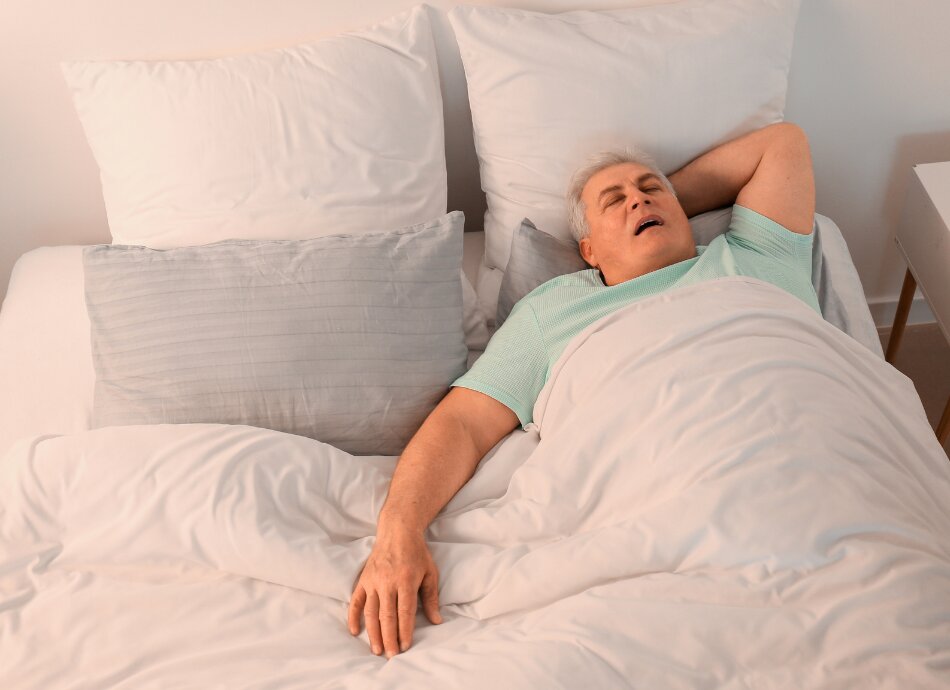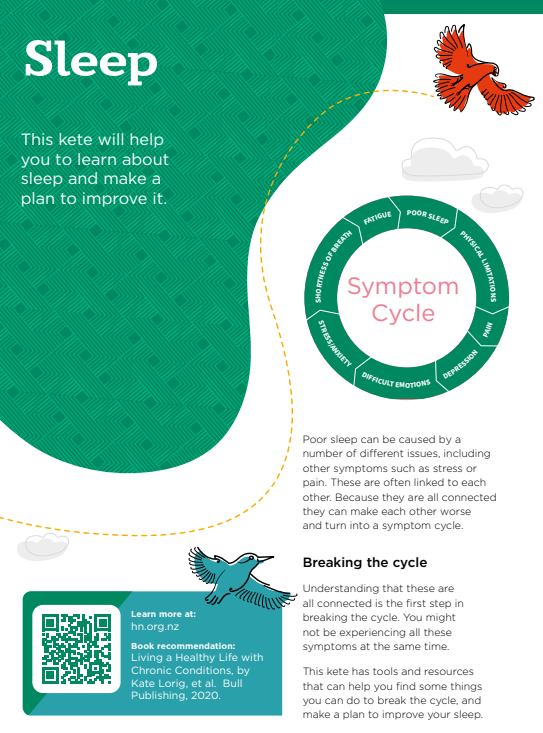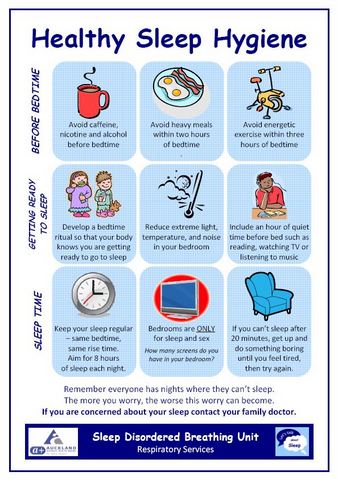If you're a frequent visitor to Healthify, why not share our site with a friend? Don't forget you can also browse Healthify without using your phone data.
Sleep – how much do I need?
Key points about how much sleep you need
- Getting enough quality sleep helps support healthy brain functioning and mental and physical health.
- In children and teenagers, sleep is also important for growth and development, behaviour regulation and school performance.
- Not getting enough sleep, or having poor quality sleep, can affect how you think, behave and get on with other people.
- Ongoing poor sleep can affect your mental health, increase your risk of some health conditions and of driving and workplace accidents.
- Most adults need around 7–9 hours of sleep each night.

The amount of sleep you need depends on your age, with babies needing a lot more sleep than adults.
Age and recommended hours needed per night
- Babies (0–3 months) – 14 to 17 hours
- Infants (4–11 months) – 12 to 15 hours
- Toddlers (1–2 years) – 11 to 14 hours
- Pre-schoolers (3–4 years) – 10 to 13 hours
- Primary/intermediate school age (5–13 years) – 9 to 11 hours
- Teenagers (14+) – 8 to 10 hours
- Adults up to 64 years – 7 to 9 hours
- Adults 65 years and over – 7-8 hours.
Some people naturally sleep slightly more or slightly less than these recommended hours. Body clocks also vary. Some people are 'larks', falling asleep early (8–9 pm) and rising early (4–5 am), while others are ‘night owls’, not feeling sleepy until between midnight and 2am and struggling to wake until 10am or later.
Getting enough sleep is especially important for growing teens. Teenagers experience brain changes that shift them towards an owl-type body clock. They may not feel sleepy until later in the evening, and struggle to wake early. Getting up early for school or work can put them at risk of being chronically sleep-deprived.
- Lack of sleep can cause problems with learning, memory and concentration.
- Without enough sleep, teens may be more susceptible to acne and other skin problems.
- Fatigue can cause aggression and irritability toward others, which can cause problems with family, friends and relationships.
- Lack of sleep can lead to overeating, and eating more unhealthy foods.
- Fatigue can make teens more likely to use nicotine and caffeine to stay awake.
- Tired teens may be more susceptible to illness, mental health conditions and suicidality.
Women’s changing levels of hormones, oestrogen and progesterone, can be responsible for different sleep patterns throughout each month and over your lifetime. Periods, pregnancy and menopause can all affect how well you sleep. It helps to know how these things can interact with other factors, like lifestyle and environment.
- Exercise can lessen the effects of premenstrual syndrome (PMS) and help you sleep more deeply.
- Make sure you finish exercising at least 3 hours before you go to bed.
- Avoid foods and drinks high in sugar, caffeine and alcohol before bedtime, as these can increase problems falling asleep (sugar, caffeine) or lead to broken, non-restorative sleep (alcohol).
- Quit smoking – nicotine can lead to broken sleep and raises your risk of getting cancer and heart disease.
- Plan your meal times so you don’t overeat late at night.
- Make your bedroom a relaxing haven – keep it dark, cool and quiet.
- Make sure bed linen and pillows are comfortable.
By around age 60, most people start to experience lighter, more disturbed sleep. As you get older, the time you spend in deep sleep falls and the time in light sleep increases. Your sleep tends to be interrupted by periods of wakefulness, meaning that you lose increasing amounts of both REM sleep and light sleep. Being awake between 30 to 50 minutes at night is normal for a 60 year old.
Older people also tend to shift towards a ‘lark’ type body clock, falling asleep earlier in the evening than younger people and waking up earlier as a result.
Although many older people have sleep difficulties, these are usually caused by health conditions that come with aging (eg, pain, heart conditions). If you have no obvious medical cause for poor sleep and are struggling to fall asleep, or stay asleep, don't assume this is a normal part of aging. Talk to your doctor.
Nearly everyone has difficulty getting to sleep from time to time, but for some people, this can be a regular ongoing problem. When this happens, not only do you feel tired and sleepy, but it can really interfere with your day-to-day functioning and affect your health.
If you’re feeling tired and/or sleepy during the day, you may not be getting enough quality sleep. After several nights of getting less sleep than you need, your body builds up a ‘sleep debt’ that you have to repay by sleeping longer than usual. You may also notice your mood getting lower and other signs of your mental health being affected.
Learning how to manage sleep problems can greatly improve your quality of life.
Apps reviewed by Healthify
You may find it useful to look at some Sleep apps.
Not getting enough sleep, or having poor quality sleep, can affect how you think, behave and get on with other people. Ongoing poor sleep can affect your mental health and increase your risk of some health conditions.
Poor sleep, including insomnia, can be a contributing factor to mental health problems, while having a mental health condition can also affect your sleep.
Insomnia may be due to medical conditions or medicines that disrupt sleep, so if you’re having trouble sleeping at any age it’s best to see your doctor for a thorough evaluation.
What is normal sleep for an adult as you age?(external link) The Better Sleep Clinic, NZ
Te Kete Sleep [PDF, 497 KB] Healthify He Puna Waiora, NZ, 2022
Healthy sleep hygiene [PDF, 306 KB] Auckland DHB, NZ
Apps
References
- How much sleep do you really need?(external link) Sleep Health Foundation, Australia
- Mental health and sleep(external link) Sleep Foundation, US
Brochures

Healthify He Puna Waiora, NZ, 2022

Auckland DHB, NZ
Credits: Healthify Editorial Team. Healthify is brought to you by Health Navigator Charitable Trust.
Reviewed by: Dan Ford, Behavioural Sleep Psychologist, Auckland
Last reviewed:
Page last updated:





